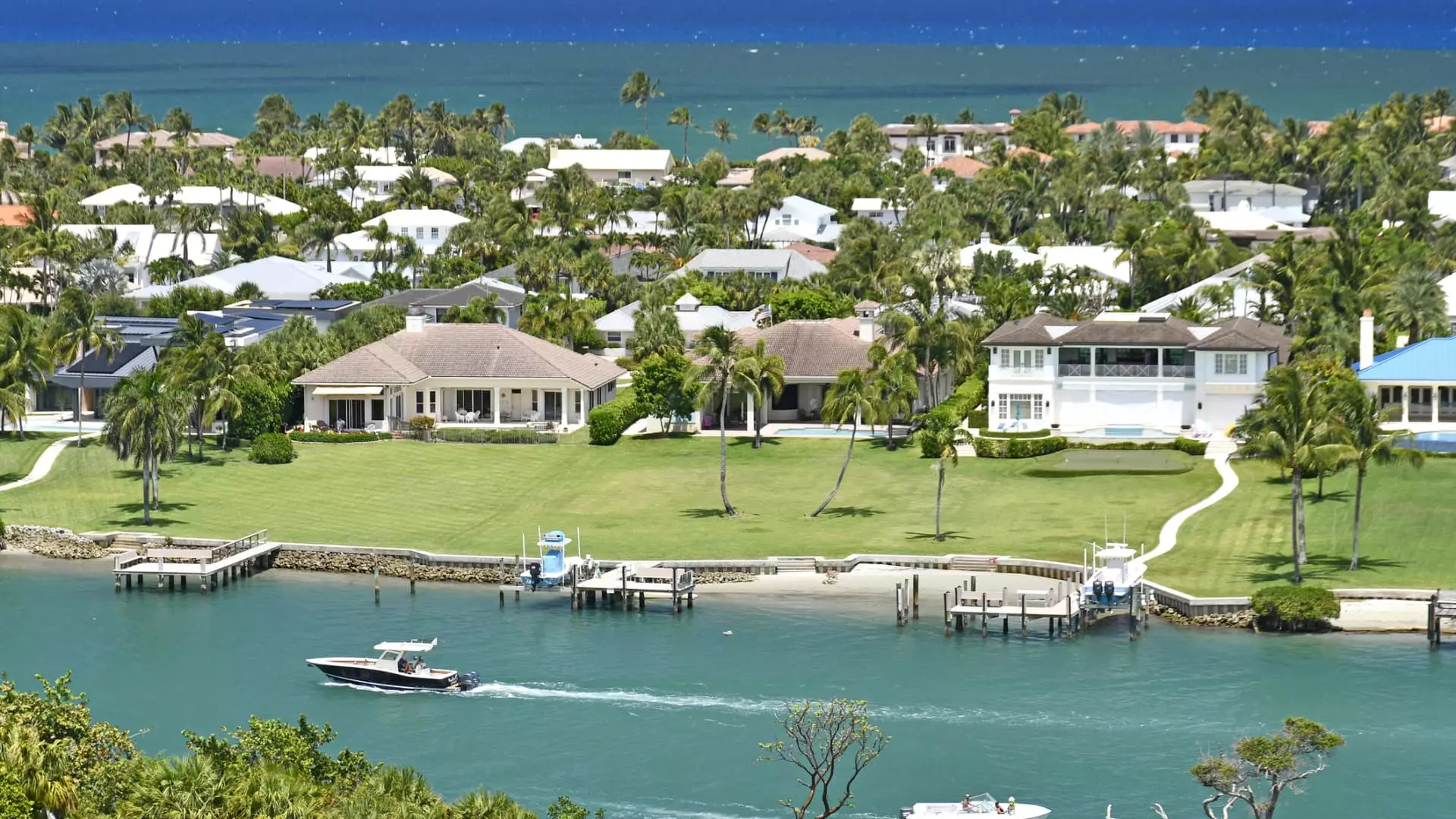Economic turbulence often reveals deep divides in society, and the luxury real estate market today is no exception. Recent data compiled by Coldwell Banker exposes a striking disparity between ultra-wealthy buyers—those possessing a net worth north of $30 million—and affluent buyers who don’t quite reach that stratosphere. While economic headwinds such as high interest rates, market volatility, and lingering trade tensions intimidate many, the ultra-rich remain undeterred, charging ahead with cash offers and high-value acquisitions. This bifurcation underscores how financial resilience sustains privilege, while even moderately wealthy individuals become more risk-averse and hesitant in uncertain times.
The Power and Privilege of Cash in a High-Interest Era
The resurgence of all-cash purchases in luxury real estate is not just a quirk—it is a powerful strategic move that only the ultra-wealthy can consistently deploy. High borrowing costs associated with today’s elevated interest rates nudge buyers to bypass financing altogether. Cash transactions give buyers not just leverage, but speed and certainty—essentials in a market where timing is key. This dynamic essentially sidelines buyers who rely on credit or mortgages, creating a marketplace that increasingly favors those who can deploy large sums without hesitation. The advantage isn’t merely financial; it reflects a broader social reality where liquidity translates into control.
Preserving Wealth Amidst Market Volatility
The notion that real estate serves as a refuge in times of economic uncertainty holds some truth, especially for those with substantial means. Unlike volatile equities or fluctuating markets, property offers something concrete—a tangible asset with intrinsic value. According to brokers, two-thirds of affluent buyers are either maintaining or increasing their real estate investments, betting on property as a bulwark against inflation and financial instability. This behavior reflects a deeply embedded belief among the wealthy that hard assets provide both security and opportunity for wealth preservation, even as other investment vehicles wobble.
A Cooling Market and Changing Buyer Expectations
Yet the luxury real estate market is far from immune to pressures. Despite overall gains earlier in the year, a sharp sales decline in May reveals vulnerabilities. Luxury single-family homes dropped nearly 5%, and attached properties faced a harsh 21% downturn. These figures suggest that shockwaves from stock market dips and economic unease do impact even the highest-end sectors. Moreover, sellers appear more willing to adjust asking prices, signaling a shift from the overheated market conditions of the past decade.
Interestingly, buyer sophistication has also reached a new level. Demanding ultra-modern amenities—smart kitchen appliances, spa-like features, seamless indoor-outdoor living—buyers, particularly newcomers to luxury housing, are zeroing in on quality and lifestyle integration. This heightened exacting standard reshapes luxury real estate from mere status symbols to personalized sanctuaries where technology and comfort are paramount. The market is no longer just about size or location but about immersive experience and intelligent design.
An Uncomfortable Truth About Inequality in Opportunity
The split between ultra-high-net-worth buyers and the merely wealthy highlights a subtle but important form of economic inequality. It is not just about income or savings—it is about the accessibility of financial tools that govern markets. The privileged few have the freedom to act decisively and maintain momentum in asset accumulation, while others hesitate or retreat. This unequal footing in luxury real estate echoes larger societal disparities, underscoring how economic forces reinforce divides rather than bridge them.
My observation, informed by a centrist liberal perspective, is that while investment in real assets is a reasonable and often intelligent choice in uncertain times, this growing polarization in purchasing power can distort markets and reduce social mobility. Public policy and economic planning must acknowledge these dynamics to foster more inclusive opportunity. Otherwise, luxury real estate risks becoming an exclusive playground for the ultra-wealthy—a microcosm of wealth concentration that diminishes broader economic diversity and resilience.

Leave a Reply